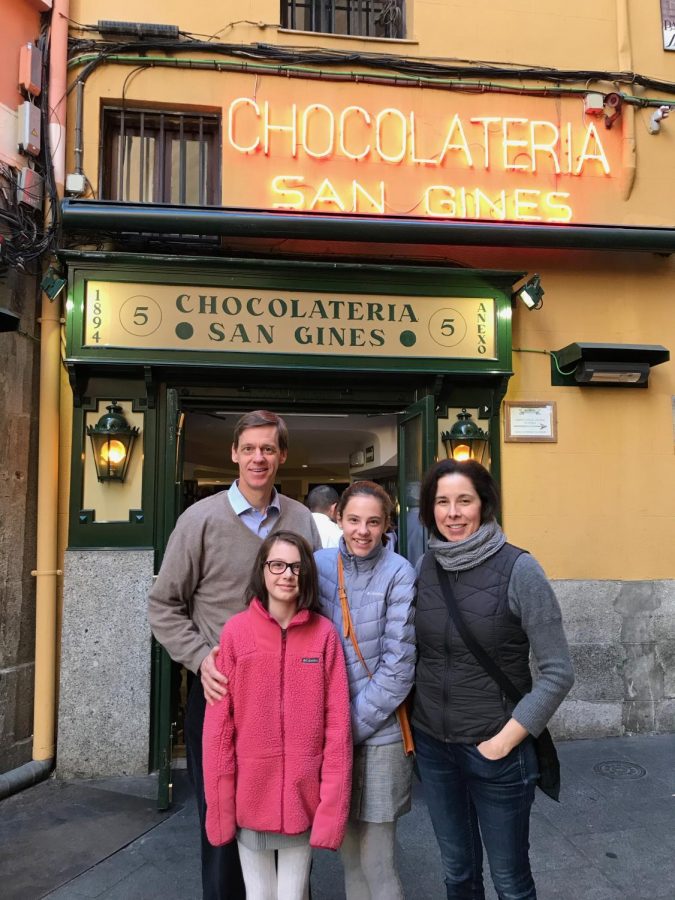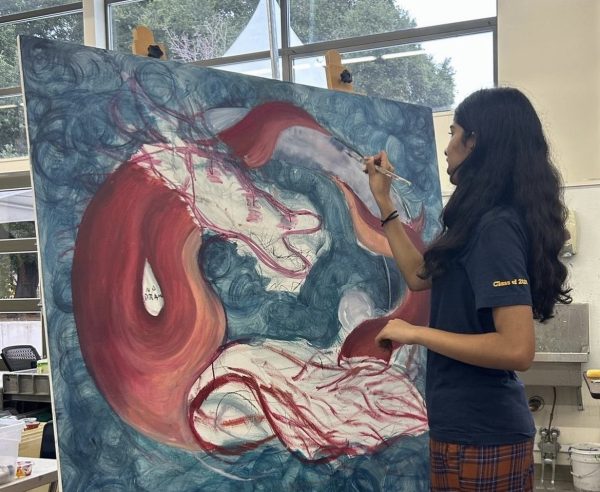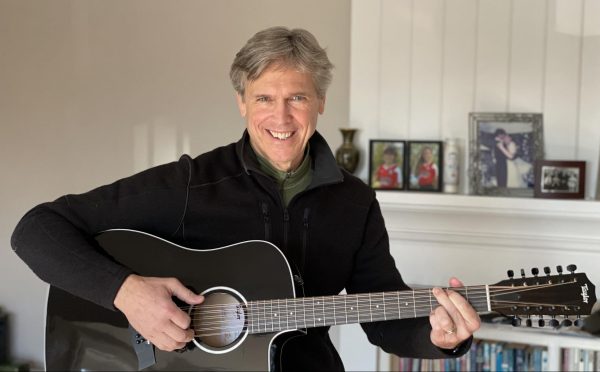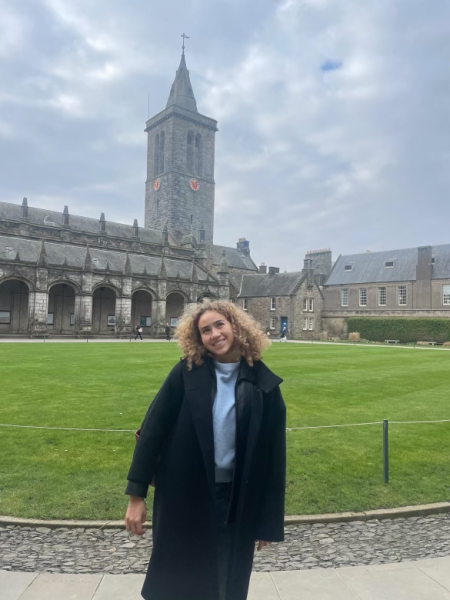Madrid To Menlo Park in Quarantine: John Schafer’s Unique Sabbatical
Upper School Director John Schafer and his family spent more than six months living in Spain earlier this year. This sabbatical, however, was interrupted by the outbreak of COVID-19 and became a particularly insightful experience. Photo courtesy of John Schafer.
October 19, 2020
As the first quarter of a new school year nears its end, Upper School Director John Schafer and his family are back in the groove of their American lifestyle after over six months spent living abroad in Madrid, Spain. Their homecoming should have been a return to normalcy; instead, it was a readjustment to living once more in the midst of a pandemic.
Spain was hit hard by the coronavirus in the middle of March, and new cases of COVID-19 surged to an average of 8,000 per day at the beginning of April, according to a case count by The New York Times. California, on the other hand, currently leads the U.S. in cases, with 867,000 as of Oct. 14.
The Schafers’ experience with the pandemic was significantly different from other Menlo families’. Holed up in his rented apartment, Schafer, his wife and his two daughters were not allowed outside — Spain had barred all but essential activities such as hospital or grocery visits — for the first 43 days of the lockdown. In Spain, “not allowed” meant more than simple mask mandates: police monitored the streets and asked pedestrians where they were going when leaving a building. “There is no going out for a bike ride or a run like I hear about back home,” Schafer said in one of the four opinion pieces he contributed to The New York Daily News concerning his quarantine experience abroad.
“I had the sense that people [in Spain] were taking the lockdown seriously,” Schafer said. He believes that many members of the Menlo community back at home have also taken shelter-in-place seriously. However, Spain, like the U.S., also had its share of protests against the lockdown, with many residents banging pots and pans on their balconies in demonstrations against the restrictions of their socialist-led government. While the split in pandemic ideology is largely partisan in the U.S., Spain’s divide is a generational one. “The young people are the ones who want to go out to bars and have fun, and they’re kind of making things hard for everybody else,” Schafer said.
“Spanish culture seems to be more rule-bound,” Schafer said. This strictness is reflected in government policy, according to Schafer. While the U.S. shutdown occurred largely on a state-by-state basis, Spain shut down the entire country at once and only eased up restrictions by region. “[Spanish culture] is not as individualistic as the U.S. but definitely not as collectivist as China,” Schafer said. China’s ability to impose a strict shutdown policy dramatically curbed its COVID-19 spread, with current daily cases in only double digits as of Oct. 14.
“People are more similar than we might realize,” Schafer said. “Every country made missteps, and every country has suffered at the hands of COVID-19. This was no one’s great moment, because people are people.”
He was just glad that he got the opportunity to travel around Europe with his family — like they had originally planned before COVID-19 hit — before they had to head home. “My experiencing self and my remembering self are different,” Schafer said. While he endured many months of boredom cooped up in his apartment, the memories he brings home with him are of beaches on the northern coast of Spain, foothill hikes and visiting the Louvre. “It’s kind of the opposite of when people talk about bad experiences being easier to remember,” Schafer said. “My experience in Spain emerges as one good memory.”














Sherry Ouyang • Oct 24, 2020 at 9:31 am
Very well written, great job!!!